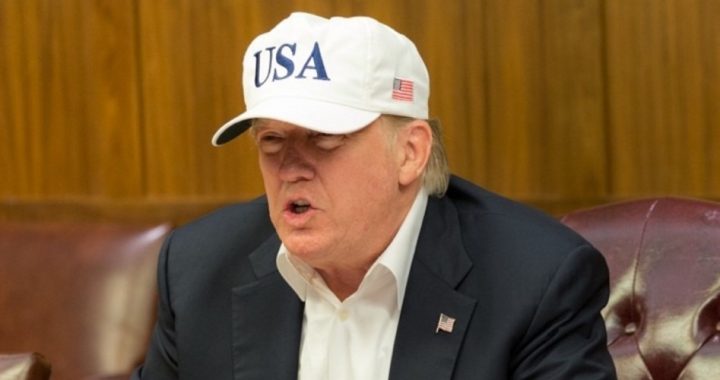
“Today the President notified the Congress of his intent to sign a trade agreement with Mexico — and Canada, if it is willing — 90 days from now,” President Donald Trump’s trade representative Robert Lighthizer said on Friday. He added that the accord is “the most advanced and high-standard trade agreement in the world.”
The operative phrase — “and Canada, if it is willing”— is the definitive statement on whether the agreement has two parties, or three. On Friday Canada’s Foreign Affairs Minister Chrystia Freeland made clear exactly where her country stands: “We’ve made some progress … we’ve done some work together. For us, the only priority is a deal that’s good for Canada and Canadians, and that protects Canadian interests and Canadian values.”
That same day Trump made off-the-record comments of his own concerning Canadian participation in the trade deal which were picked up by the Toronto Star via Bloomberg. Said Trump, any possible trade deal with Canada would be “totally on our terms.” He added, “Here’s the problem: if I say no [deal], the answer’s no. If I say no, then you’re [the media] going to print that and it’s going to be so insulting [to the Canadians that] they’re not going to be able to make a deal.”
But the media did print that, via an arrangement between the Toronto Star and Bloomberg. When Trump learning of the leak he tweeted:
Wow, I made OFF THE RECORD COMMENTS to Bloomberg concerning Canada, and this powerful understanding was BLATANTLY VIOLATED. Oh well, just more dishonest reporting. I am used to it. At least Canada knows where I stand!
The response from Canadian officials was predictable and immediate. When asked about the comment, Canada’s Freeland took the high ground: “This week, and from the beginning of negotiations, Ambassador Lighthizer and his team have been negotiating in good faith and with good will.”
But Freeland is constrained by simple reality: Her country needs the United States far more than the United States needs Canada. As noted by The New American, the world’s GDP is $87 trillion and the United States generates a quarter of it, while Canada’s share of it is less than $2 trillion. Worse, Canada’s exports to the United States represents three-quarters of total Canadian exports, or about one-fifth of that country’s total gross domestic product. In addition, Canada has been protecting its agricultural sector at America’s expense for years, putting tariffs of 300 percent on various dairy and agricultural products coming from the United States.
In advance of negotiations Canadian business investment was already starting to slow, with some Canadian companies expanding their presence in the United States at the expense of their home country’s economy.
In sum, then, even though the president isn’t party to the negotiations with Canada which are rescheduled to restart on Wednesday, Lighthizer knows that any agreement he is able to hammer out with Freeland must ultimately pass muster in the Oval Office.
If Freeland isn’t able to come to terms with Trump through Lighthizer, Trump holds the winning hand: the Chevrolet Impala, made by General Motors, is manufactured at its plant in Oshawa, Ontario. And Trump has said repeatedly that, in the event Freeland isn’t willing to play Trump’s game, he will place retaliatory tariffs on automobiles coming to the States from Canada.
So Freeland is left with little room to maneuver: Cut substantially those dairy tariffs in order to join the revised NAFTA agreement, or suffer further declines in her country’s economy as tariffs on vehicles coming into the United States take a bite out of their exports already heavily dependent upon American purchasers.
Photo: Whitehouse.gov
An Ivy League graduate and former investment advisor, Bob is a regular contributor to The New American magazine and blogs frequently at LightFromTheRight.com, primarily on economics and politics. He can be reached at [email protected].
Related article:



